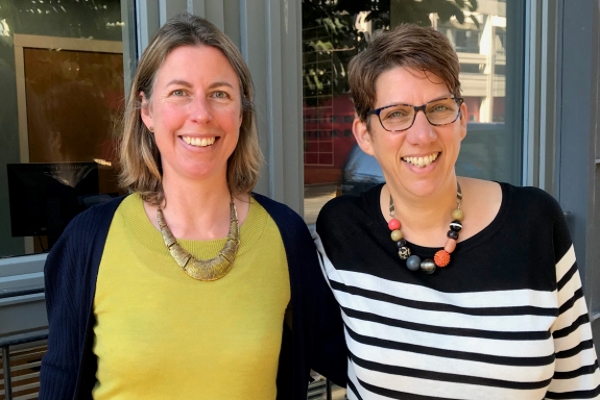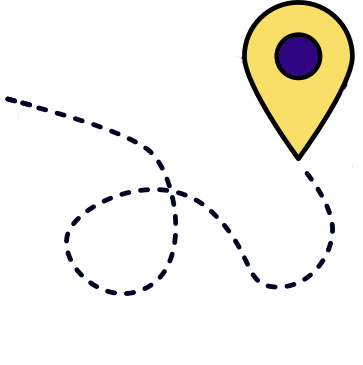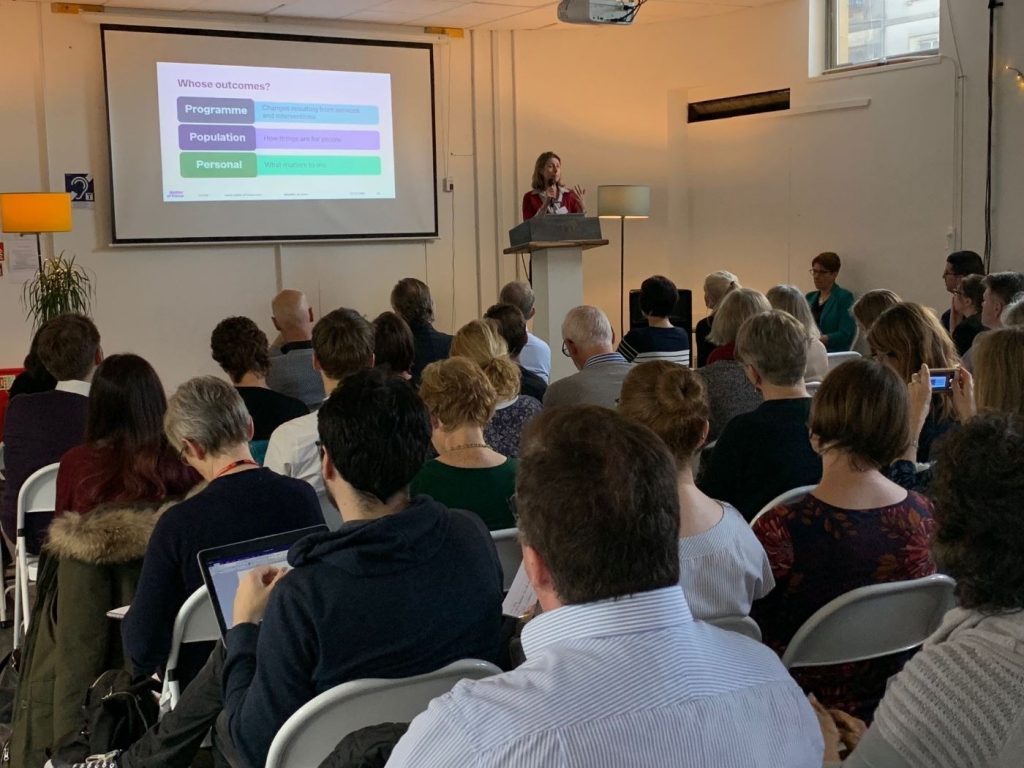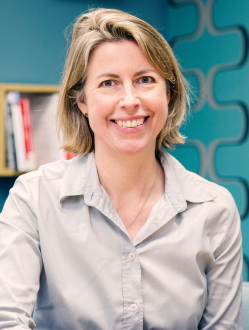
For both of us, this was our first foray into the world of business, motivated by the desire to have a more tangible positive impact on the world (see Sarah’s post about the journey from academia to mission-led start-up ).
We had both spent our careers working with and in public service organisations supporting them to make better use of data and information to learn and improve as well as researching the factors that got in the way.
Having developed a solution that we passionately believed could overcome many of the barriers we had learned about, Sarah and I were keen to find a way to get it out to as many organisations that could benefit as possible. And so, it was with great excitement that first Matter of Focus and then our software, OutNav, launched onto the burgeoning Edinburgh tech start-up scene.
One of the key mantras of our work with public services, is ‘It’s not what you do, but the way that you do it’.
It is one thing for organisations to say that they are collaborating, empowering, involving or engaging – the real test is how people act day in and day out to bring this to life.
From the start we brought the same thinking to our business. It is not enough for us to talk a good game, the true test of whether we are sticking to our claims and credentials as a mission-led business is to be found in those many small practices and decisions we take every day.
Embracing opportunities
Over the past two years we have enthusiastically embraced all the opportunities we can to learn about business and have systematically sifted through the books, the advice and models and extracted the ones that are useful for us including support from Business Gateway and Scottish Enterprise.
We have always valued to the opportunity to have our business model and strategy interrogated by people with many decades of experience of working with large and profitable businesses, but we have found that there have been relatively few bits of advice that we have felt comfortable adopting in the context of our mission-led business.

Instead, we have found our own way of addressing the various challenges that any ambitious and growing business faces, linking with like-minded businesses from the Zebra and B-Corporation movements. In so doing we have often come back to our long experiences of supporting and spreading innovation in public services.
This has led us to hone down on a few key principles that guide the work of Matter of Focus.
Key principles that guide our work
1. Only work where we can deliver value.
Organisations with a vision for social change internationally are under great financial pressures. We recognise that when our clients spend money with us it is money not spent directly helping the people and communities they care about. We have found that by adopting our approach client organisations have become more efficient, effective and better able to leverage funding.
Through continuously learning we understand which kind of organisations are best placed to benefit from our support and use this as the basis of discussion with any prospective clients. This ensures that all of us are clear about what our work together will involve and are as confident as we can be that it will bring value to the organisation.
2. No one size fits all.
Standard business advice encourages start-ups to create a single (ideally simple) product, identify who needs it and then make sure as many of those people are reached as possible. This works well if your aim is to make money, but not if your aim is to contribute to meaningful change.
We are excited and proud that many organisations are successfully using our software product OutNav to learn, improve and tell their story. But no single product is going to deliver for the many organisations who could benefit from our support on meaningful outcome evaluation, because there is no simple fix for such a complex problem. Over the next year we will be building a diverse range of products and services to meet a wider variety of needs. This will include training on working with outcomes, data, evidence and evaluation.
3. Create the conditions for change
Our mission will be complete when people don’t need us anymore. We dream of a world where organisations with a vision for social change have the tools and capacity to continually learn and improve. In this ideal world, commissioning and performance management structures would value learning and improvement over crass ideas of performance. Mainstream improvement organisations would be able support meaningful outcome working and evaluation both practically and technically. We feel our biggest contribution to creating this change is by sharing the message that meaningful outcome working is possible and brings many benefits. We do this through our blogs, seminars, webinars and reports. We actively work with our clients to influence decision makers in their local systems to raise awareness about the benefits of putting learning front and centre.

4. Be flexible
A central mantra of profit-led business is standardisation. Standard packages, features, products, timeframes. However, the organisations we work with are incredibly diverse. Going down the route of standardising everything would mean that we miss some key opportunities. We have worked with organisations from very small, to government departments, looking at a broad range of people-based outcome challenges. These have included work focused on professional improvement, children, families, carers and older people. We have learned a lot about the fundamentals of planning for, learning about and evaluating outcomes that a more standard approach would not have delivered. Our clients include organisations delivering services, improvement organisations looking at whole sectors or issues, and researchers and evaluators. Because as a business we have a mission, we need to reach everyone who faces the outcome evaluation challenges we want to address. This means tailoring messages to different people and sectors and developing multiple solutions that meet their specific needs.

Looking forward
As we embark on year 3, we’ve reached a point in our journey where our pioneering early adopters are getting great value from our approach and we’ll be telling their stories here over the next few months. We are also really excited about the new clients coming on board over the summer.
If you want to stay up-to-date with our news and you’re not already part of our growing community, sign up to our mailing list.
